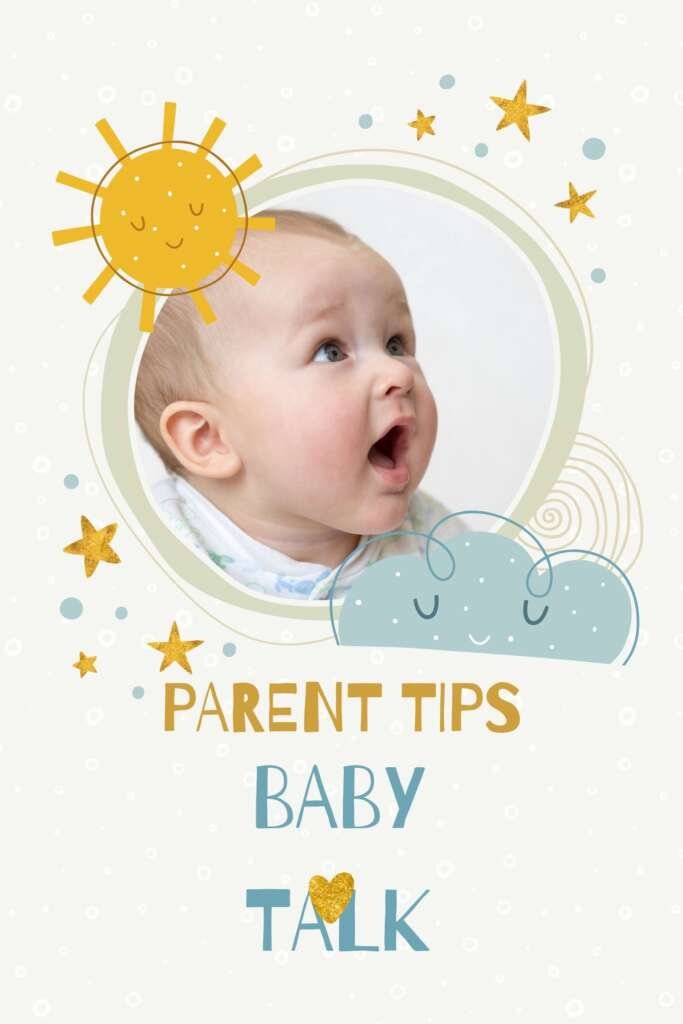Babies are born with incredible capacity to learn and grow. Did you know that the parents communicating with infants can actually give their brains a boost? Infant-directed speech, often called “baby talk” , has a profound impact on infant brain development. Speaking to infants is not just for entertaining them, it actually shapes the architecture of growing brains and helps in brain development. In this blog we will explore the baby talk and uncover many cognitive benefits for social-emotional development. Let’s get into this blog.
The Science Behind Baby Talk

When we talk to infants, our speech patterns change dramatically compared to how we communicate with other adults. The baby talk is characterized by following key differences:
Higher-Pitched Tones
Baby talk features a higher fundamental frequency and wider pitch range than other normal adult speech. The sing-song style helps capture an infant’s attention.
Simpler Vocabulary and Sentence Structure
Parents can use shorter and simpler words and phrases when talking to babies, often repeating the same words and sounds.
Slower Pace and Increased Pausing
Baby talk is spoken at a slower rate with more pauses between phrases allowing infants more time to process the information. These unique speech patterns are not unique to any one language or culture. Infant brains are undergoing rapid growth and reorganization in the first years of life. Baby talk provides the perfect type of stimulation to support this process.
Neuroimaging techniques have revealed that infant-directed speech increased activity in brain regions associated with language and emotional processing compared to adult-directed speech. When parents use baby talk, the auditory cortex, prefrontal cortex and limbic system all show heightened activation in infants. It’s more effective at stimulating key areas of the developing brain.
Benefits of Baby Talk
While baby talk may sound simplistic, it actually provides early stimulation that supports infant development across multiple domains including language, social-emotional and cognitive skills.
Language Development
One of the main benefits of baby talk is its impact on language development. Studies show that babies exposed to more baby talk have larger vocabularies and develop grammar skills faster than others. The exaggerated tones, repetition and slower pace of baby talk help infants pick up on the building blocks of language more easily.
Social and Emotional Development
Baby talk plays a key role in supporting social and emotional growth in infants. The responsive nature of infant-directed speech helps strengthen the bond between babies and parents. This back and forth conversation style fosters feelings of safety, trust and attachment. Infants exposed to more baby talk show better emotional understanding and regulation in childhood.
Cognitive Development
Baby talk doesn’t just benefit language and social-emotional skills. The slower pace and repetitions of infant-directed speech helps to stay engaged and focused for a longer time. The simplified vocabulary and context-rich nature of baby talk make it easier for infants to make sense of the world around them.
Tips For Parents

Here are some tips for parents to maximize the impact of this special speech style:
Incorporate Baby Talk into Daily Interactions
Make an effort to use baby talk throughout daily routines and playtime with your baby. Describe your Montessori Activities and what you are doing. Engaging in back-and-forth conversations using exaggerated tones and simple language.
Maintain a Mix of Baby Talk and Adult Speech
It’s essential to expose infants to more mature, grammatically-complex speech. Alternate between the two styles to give your child a well-rounded language environment.
Encourage Fathers to Use Baby Talk Too
Research shows that both mothers and fathers benefit infants when they use baby talk. Make sure dads are engaging in this special style of communication.
Adapt Baby Talk for Bilingual Families
If you are raising your child to be bilingual, you can use baby talk in both languages. This helps reinforce language learning and maintains a rich, responsive environment.
Baby Talk and Early Literacy
The close link between infant-directed speech and early reading and writing abilities stems from the way baby talk stimulates the brain’s language processing networks. Here’s a closer look how baby talk facilities early literacy skills:
Phonological Awareness
Repetitive sounds, rhythms and rhyming patterns of baby talk help infants to learn better. Fostering this sensitivity to the sounds of language, baby talk sets the stage for infants to more easily grasp the relationships between written letters and their corresponding sounds.
Print Motivation
Engaging and emotionally charged nature of baby talk has been associated with language and communication. This motivation to interact with words and books has sped up the learning ability.
Narrative Skills
The back-and-forth conversation style of baby talk helps develop an infant’s capacity for storytelling and understanding narrative structure. It ensures that infants receive massive exposure to this special style of communication sets the stage for a lifetime of language learning.
Conclusion
These are some powerful benefits for young brains by using exaggerated tones, simple vocabulary and repetitive patterns. Parents can actively stimulate key language, social-emotional and cognitive skills. Infants exposed to more baby talk demonstrate faster vocabulary expansion and enhanced attention. Making a habit of this special style of communication, you can give your infant’s rapidly developing brain the boost it needs to thrive.


